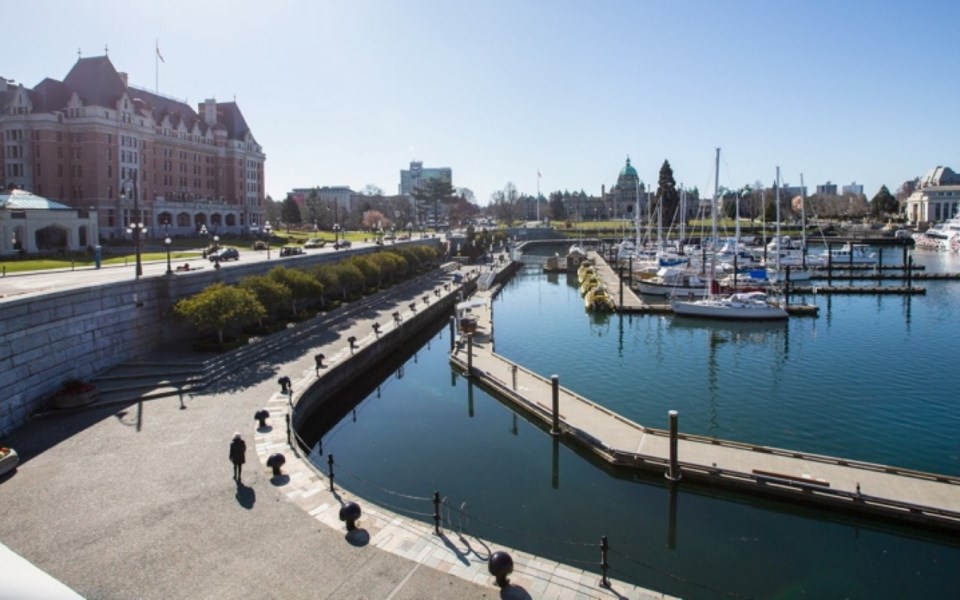The shadow of the global pandemic felt a little darker and colder for the province's tourism industry this past week as Destination B.C. revealed three possible scenarios for the impact of the outbreak.
It's likely the tourism industry will lose 130,000 jobs and drop $16.8 billion in revenue as a result of COVID-19, according to the province's tourism marketing organization.
In the worst-case scenario, those job losses could total 147,000 and revenue could drop $19 billion, while the best-case scenario suggests job losses could be about 75,000 and industry revenue reduced by $9.8 billion.
Last year, the tourism industry accounted for $21.5 billion in combined revenue, employed 166,000 people and provided $1.8 billion in tax revenue, according to the province.
In the best-case scenario offered by Destination B.C., short-haul tourism could start in June and July of this year, with U.S. travel starting in the fall and international travel by December.
The worst-case scenario suggested short-haul visitation wouldn't start until next spring, U.S. visitation next summer and international visitation not until the winter of 2021.
"Any of those scenarios is devastating to tourism and it will be felt this year and next, for sure," said Ryan Malane, vice-president of Black Ball Ferry.
"Obviously, we hope to see recovery sooner rather than later, but we have to do what's right."
Malane said the message and modelling on timelines and impact seems to be consistent on both sides of the border.
The sobering numbers from Destination B.C. were laid out for the industry during a conference call last week.
In delivering the sombre news, Maya Lange, vice-president of global marketing at Destination B.C., warned those on the conference call that when travel does resume, it will do so slowly and will be hyper local at first.
International travel is likely to be very slow to resume, Lange said, as many people wait for things to return to normal or for the development of a vaccine before travelling internationally.
She suggested Victoria and Vancouver could reap the benefit of early recovery.
When international travellers do start travelling, they will likely be looking for less-congested cities than destinations such as Paris and London, including resort getaways and proximity to rural settings, she said.
Malane said the bleak outlook no doubt sent a shiver through small businesses that are dependent on tourist dollars.
"I think there are a lot of businesses that will be in jeopardy and will not have the cash flow to sustain themselves without a 2020 season," he said. "And for them, 2021 may just be too far off to get to and survive."
Paul Nursey, chief executive of Destination Greater Victoria, said if there was no summer travel season at all, it would be a "very serious blow."
"Many businesses are just hanging on, looking for clear direction, which we understand is hard to provide right now as the focus is on the health emergency," he said.
"As an association, we are most concerned that businesses will fail over the summer and fall and winter ahead. Cash flow and liquidity is vital now and for the next 18 months until summer 2021."
Nursey said he remains hopeful that limited domestic travel will be permitted this summer.
"That would be a very positive first step," he said.
Nursey said his organization is working with its partners to develop a road map of what will be needed to get the industry through the next 12 to 18 months and identify what kind of support would be needed for that.
Provincial Tourism Minister Lisa Baere acknowledged Friday the sector has been hit hard already, adding the province has stepped up with a $5-billion aid package to provide some relief for workers and businesses in all industries.
"Thanks to ongoing communication with tourism leaders, we have addressed some immediate concerns specific to the sector. Our government remains committed to help all aspects of B.C.'s tourism industry survive and recover from the impacts of COVID-19," she said in a statement.
"As the premier said this week: 'I hope in the not-too-distant future, people are travelling around B.C. .' And our government is working closely with the tourism industry on recovery plans for this sector to ensure B.C.'s tourism businesses come back strong, when it is safe to welcome visitors to travel around our beautiful province."
This article originally appeared here.




